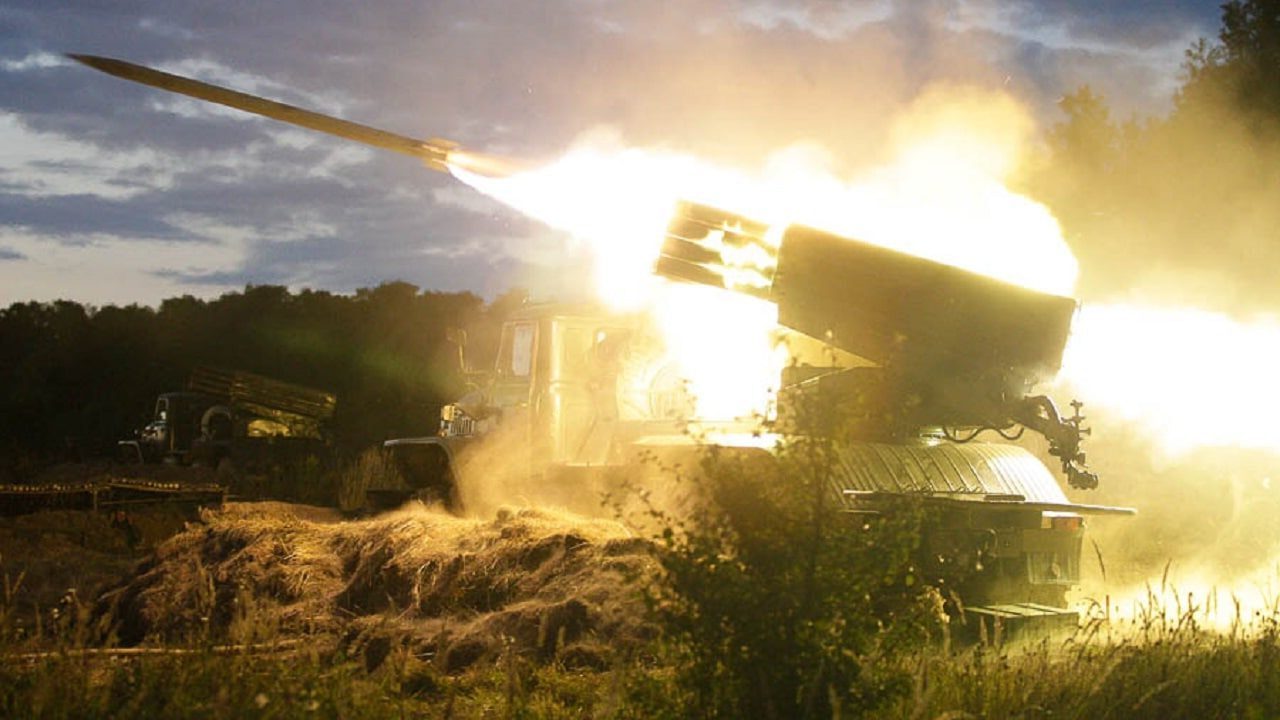The Russian Nuclear Threat in Ukraine is Fading:
As the war in Ukraine has ground on, Russian President Vladimir Putin has occasionally made threats to use nuclear weapons.
He has variously hinted that he might use tactical nuclear weapons in Ukraine to change the course of the war – where his military is losing – or that Russia and the West might somehow slide into a nuclear exchange.
However, Putin has insisted he never intended to use nuclear weapons after all.
Putin is an inveterate liar, but in this, he probably told the truth.
He has faced enormous pressure from all sides – the US, Europe, Ukraine, and China – not to escalate in this manner. Also, it is unclear how a battlefield nuclear weapon could help him win the war. Worse, using a strategic nuclear weapon – against a Ukrainian city, or even worse, against NATO – would turn the entire world against him. Even China would likely support a Ukrainian military victory after that.
In short, the entire hysteria about looming WWIII was almost certainly exaggerated.
Indeed, given that its most aggressive Western promoters were also, not coincidentally, those who want Russia to win – for Christian nationalist reasons on the right and ‘anti-imperialism’ on the left – the whole scenario feels like a massive Russian propaganda operation to scare the West into halting aid to Ukraine.
No Good Nuclear Scenarios
The most obvious reason for skepticism over Russian nuclear use is the lack of an obvious scenario for their deployment.
Nuclear weapons, by definition, are imprecise. There is no huge, clustered Ukrainian military target on the battlefield to justify that much indiscriminate force. Any use on the Ukrainian battlefield would almost certainly expose Russian soldiers as well.
In World War I, gas weapons notoriously had this problem. Changes in the wind would blow gas back at one’s one lines, and gas could, ironically, limit the successful advance of one’s side after it helped an initial breakthrough. Similarly, Russian troops would, presumably, advance into a space irradiated by their side’s recent nuclear detonation. Nuclear weapons, like gas, likely have a curious, self-limiting effect on the battlefield.
War in Ukraine Won’t End
It is also unlikely that a tactical or battlefield nuclear weapon would drive Ukraine out of the war.
Ukrainian morale is high. The public strongly supports fighting to the end, including the re-conquest of Crimea. Russian terror bombing has not shaken Ukrainian morale, and allied bombing in World War II, Korea, and Vietnam did not either.
The effect of a low-yield nuclear weapon would be limited to a particular area (because the warhead is small). Because that would probably not push Ukraine out of the war, there is no real military rationale to risk the likely huge global backlash. NATO, for example, would almost certainly enter the war more deeply.
All this applies even more to large, strategic nuclear weapon. A weapon of this scale would be used against a city. But the military value of that is unclear also – perhaps a strike on Kyiv could eliminate Ukraine’s leadership in one shot – but the global backlash risk is even greater than the use of small weapon.
In response, NATO would almost certainly provide almost everything Ukraine wants to fight the war, whereas to date it has not shipped high-end weapons like stealth aircraft or advanced tanks. NATO might also enforce the no-fly zone over Ukraine, which Kyiv unsuccessfully sought in March. China would almost certainly turn against Russia out of sheer fear that Putin was willing to use such a weapon. Outsiders would support an internal coup against the Putin regime and probably find sympathetic voices in the Russian state and military fearful of the course Putin had stuck.
In short, there is no obvious use for nukes in this war which is not vastly outweighed by the likely costs. Putin is reckless but not mad, which is why he is bluffing.
Putin’s Options are Poor, and Not Even Nuclear Use Will Save His War
The other problem with the WWIII argument is how hard it is to envision the West somehow sliding carelessly into a nuclear conflict with Russia.
This is obviously suicidal. All sides in a nuclear conflict have massive incentives to be ultra-cautious and not escalate out of anger or emotion. Even if Russia strategically nuked Ukraine, the West would likely not respond with a nuclear weapon. There is no reason to, as it opens the possibility of precisely a slide toward nuclear escalation and direct Russia-NATO conflict. The West has many other options – more sanctions, greater conventional and financial support for Ukraine, air and maritime involvement in the war and so on. China would likely also turn against Russia after a nuclear strike.
The only possible scenario in which we somehow stumble into a nuclear war with Russia is if Moscow chooses to nuke a NATO state. But that serves no purpose for Putin: It does not help him win his war; it would lead to another war, with NATO, which vastly outweighs Russia, and probably China; the Russian military and intelligence services would probably overthrow Putin to prevent such a war which Russia would certainly lose.
In the end, much of the argument that a nuclear exchange or WWIII looms is based on loose, apocalyptic alarmism about any invocation of nuclear weapons. This is likely what Putin was counting on when he cast around his random nuclear threats. He wanted to stir a general hysteria and give his western sympathizers a talking point to dissuade their government from aiding Ukraine in the war. But this was threat inflation. Russia lacks a way to use a nuclear weapon not massively offset by its costs.
The entire debate in the West is grossly exaggerated and manipulated by pro-Putin voices.
Expert Biography: Dr. Robert E. Kelly (@Robert_E_Kelly; RoberEdwinKelly.com) is a professor of international relations in the Department of Political Science at Pusan and a 19FortyFive Contributing Editor.

